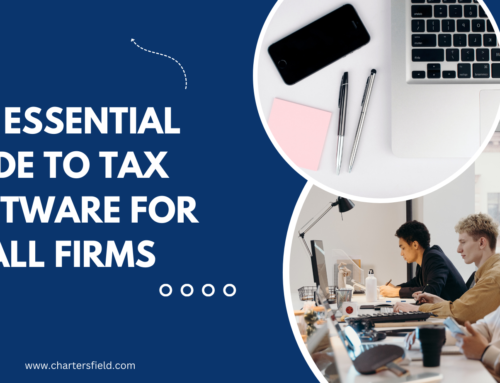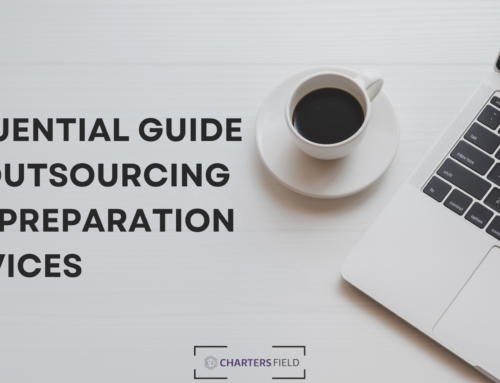In today’s fast-paced business environment, streamlining operations and focusing on core competencies is crucial for companies to stay competitive. Tax preparation, while essential, can be time-consuming and resource-intensive. This is where tax preparation outsourcing services come into play, offering a solution that can save both time and money for businesses. In this comprehensive guide, we’ll answer your burning questions about tax preparation outsourcing and help you make informed decisions for your business.
1. What is a Tax Preparation Outsourcing Service?
Tax preparation outsourcing involves hiring a third-party service provider, often based in another country, to handle various aspects of the tax preparation process. This can include tasks such as data entry, tax calculations, documentation, and ensuring compliance with tax laws and regulations.
2. How Does Tax Preparation Outsourcing Work?
The process typically involves:
– Data Collection: You gather and provide all the necessary financial data and documents to the outsourcing provider.
– Data Entry and Processing: The provider processes the data, performs calculations, and prepares the necessary tax documents.
– Review and Quality Check: The prepared documents undergo a review process to ensure accuracy and compliance.
– Finalization: Once reviewed and approved, the tax documents are finalized and ready for submission.
Check This Blog Digital Transformation Future Of Accounting Firms: Why Accountants Using Digital Transformation
3. What Advantages Does Tax Preparation Outsourcing Offer?
– Cost Savings: Outsourcing can be more cost-effective than hiring and training in-house staff.
– Expertise: Outsourcing providers often have specialized tax expertise, staying up-to-date with the latest tax regulations.
– Focus on Core Activities: Businesses can concentrate on their core operations, leaving tax-related tasks to experts.
– Scalability: Outsourcing allows you to scale up or down based on your needs.
– Time Efficiency: Outsourcing frees up valuable time during busy tax seasons.
4. What Are Typical Difficulties When Outsourcing Tax Preparation Services?
– Communication Challenges: Working with an offshore provider can sometimes lead to communication issues due to time zone differences and language barriers.
– Data Security Concerns: Sharing sensitive financial information requires robust data security measures.
– Quality Control: Ensuring accuracy and compliance with tax regulations might require additional oversight.
5. How to Address Challenges in Outsourcing Tax Preparation Services?
– Clear Communication: Establish regular communication channels and ensure all parties understand expectations.
– Data Security Measures: Use secure file-sharing platforms and enforce data protection protocols.
– Quality Assurance: Implement a review process to catch errors and ensure accuracy.
Check This Blog Unveiling the Potential: Business Sectors for Accounting Outsourcing to India
6. What Does It Typically Cost to Outsource Tax Preparation Services?
The cost of outsourcing tax preparation services can vary widely based on several factors:
– Complexity of Tax Requirements: The more intricate your tax needs are, the higher the cost might be, as it requires more specialized expertise.
– Volume of Work: The number of tax returns or documents that need preparation will influence the overall cost. Higher volumes often lead to better economies of scale.
– Location of Outsourcing Provider: The cost can differ based on the geographical location of the outsourcing provider. Countries with lower labor costs, such as India or certain Eastern European countries, might offer more cost-effective solutions.
– Additional Services: If you require additional services beyond basic tax preparation, such as tax planning or research, this could impact the overall cost.
While cost savings are often a primary reason for outsourcing, it’s essential to strike a balance between cost and quality. Choosing the lowest-cost provider might compromise the accuracy and thoroughness of your tax preparation.
7. What Effect Does Outsourcing Tax Preparation Have on the Timeline for Submitting Taxes?
Outsourcing tax preparation can actually expedite the timeline for submitting taxes for a few reasons:
– Expertise: Outsourcing providers specialize in tax preparation, so they are well-versed in tax laws, regulations, and procedures. This expertise enables them to work more efficiently and accurately.
– Dedicated Resources: By outsourcing, you allocate the task to a dedicated team, allowing your in-house staff to focus on their core responsibilities.
– Streamlined Processes: Established outsourcing providers often have streamlined workflows that optimize the tax preparation process.
However, the timeline will still depend on factors like the complexity of your taxes, the responsiveness of both parties and the thoroughness of your data collection.
Check This Blog Smart Outsourcing: Accelerating Your Business Growth Trajectory
8. How Do CPA Firms Choose a Tax Outsourcing Services Provider?
Selecting the right outsourcing provider is crucial for a successful partnership. Here are key factors to consider:
– Experience and Expertise: Look for providers with a proven track record in tax preparation outsourcing and experience working with businesses in your industry.
– Regulatory Compliance: Ensure the provider is well-versed in the tax laws and regulations relevant to your location and industry.
– Data Security: Check for robust data security measures to protect your sensitive financial information.
– Communication: Effective communication is essential for a smooth collaboration. Choose a provider that can communicate clearly and promptly despite potential time zone differences.
– References and Reviews: Seek feedback from previous clients and read reviews to gauge the provider’s reputation and reliability.
9. What Are the Offerings of Tax Outsourcing Companies in Terms of Services?
Tax outsourcing companies offer a range of services beyond essential tax return preparation:
– Income Tax Return Preparation: This is the core service, involving the preparation and calculation of tax returns based on your financial data.
– Financial Statement Preparation: Some providers can assist in preparing financial statements that might be required for tax purposes.
– Tax Research: They can conduct research to help you understand complex tax issues or plan for future tax obligations.
– Tax Planning: Providers can offer insights into optimizing your tax strategy and minimizing liabilities.
– Consulting Services: Some providers offer consulting services to address specific tax challenges or unique circumstances.
When choosing a provider, ensure they offer the specific services that match your needs.
10. How Can I Effectively Get in Touch With My Offshore Tax Preparer?
Effective communication is vital for successful outsourcing:
– Communication Channels: Establish clear communication channels such as email, instant messaging platforms, and video conferencing tools.
– Regular Updates: Schedule regular update meetings to discuss progress, address concerns, and align on expectations.
– Designated Contacts: Assign a dedicated contact person on both sides to facilitate smoother communication.
– Time Zone Consideration: Be mindful of time zone differences and try to find overlapping working hours for real-time interactions.
Check This Blog How Outsourced tax preparation services save over 80% of the CPA firm’s cost?
11. What Details Are Required for Me to Furnish to My Tax Preparer Who Is Handling the Outsourcing?
To ensure accurate tax preparation, provide your tax preparer with comprehensive and accurate information, including:
– Financial Data: Income and expense records, investment statements, asset information, and other financial data.
– Business Details: For businesses, provide information about revenue, expenses, payroll, and any unique financial transactions.
– Documentation: Furnish all necessary documents, including receipts, invoices, and supporting documentation for deductions.
– Legal and Regulatory Information: Any relevant legal and regulatory information specific to your industry or location.
By providing detailed and organized information, you enable your tax preparer to complete the work accurately and efficiently, minimizing the need for extensive back-and-forth communication.
These elaborations should provide you with a clearer understanding of these key aspects of tax preparation outsourcing. Making informed decisions in these areas will contribute to a successful outsourcing partnership that saves you time, money, and effort while ensuring accurate and compliant tax preparation.
12. How Can I Monitor the Advancement of My Tax Preparation While Collaborating With an Outsourcing Provider?
Monitoring the progress of your tax preparation is crucial to ensure accuracy and timeliness. Here’s how you can effectively keep track:
Establish Milestones: Define key milestones and deadlines for different stages of the tax preparation process.
Regular Updates: Request regular updates from the outsourcing provider on the status of the work and any challenges they might be facing.
Project Management Tools: Utilize project management software to track tasks, timelines, and progress. This provides transparency and accountability.
Feedback Loop: Maintain an open feedback loop to address any concerns or adjustments needed throughout the process.
Real-time Communication: Use communication tools to address urgent matters promptly, especially during critical phases of tax preparation.
By maintaining a structured approach to monitoring, you can stay informed and intervene if necessary, ensuring the quality and efficiency of the tax preparation process.
13. What Are the Potential Cost Savings for CPA Firms When Employing Tax Preparers From India?
Outsourcing tax preparation to countries like India can offer substantial cost savings due to several factors:
– Lower Labor Costs: The cost of skilled labor in countries like India is often significantly lower than in Western countries.
– Economies of Scale: Outsourcing providers can handle multiple clients simultaneously, distributing costs and leading to greater cost efficiencies.
– Reduced Overheads: Outsourcing eliminates the need for additional office space, equipment, and infrastructure costs.
However, while cost savings are a definite advantage, the decision to outsource should also consider the provider’s expertise, quality standards, and ability to meet regulatory requirements.
14. How Can I Effectively Review My Tax Return When Utilizing the Services of an Outsourced Tax Preparer?
Reviewing your tax return is a critical step to ensure accuracy and compliance. Here’s how to approach the review process:
– Check Data Accuracy: Verify that all the financial data has been accurately entered and calculated.
– Cross-Reference Documents: Cross-reference the tax return with the supporting documents to ensure consistency.
– Verify Deductions and Credits: Double-check deductions, credits, and exemptions to ensure they are correctly applied.
– Check Compliance: Ensure that the tax return is compliant with current tax laws and regulations.
– Thoroughness: Conduct a thorough review to catch any errors, omissions, or discrepancies.
If possible, involve someone with tax expertise within your organization to assist with the review process. Effective review helps prevent potential issues down the line.
15. What Makes ChartersField Stand Out for Tax Preparation Outsourcing Services?
ChartersField is a standout choice for tax preparation outsourcing due to its distinctive qualities:
– Extensive Experience: ChartersField boasts a proven track record of delivering accurate and timely tax preparation services to businesses across industries.
– Dedicated Team: Their team of tax professionals is skilled and knowledgeable, ensuring your tax needs are met with expertise.
– Data Security: ChartersField prioritizes data security, implementing stringent measures to protect sensitive financial information.
– Client-Centric Approach: They focus on building strong communication channels, tailoring their services to meet your specific tax requirements.
– Track Record: Positive reviews and testimonials from satisfied clients showcase their commitment to excellence.
Choosing a reputable provider like ChartersField ensures that you’re partnering with experts who prioritize accuracy, compliance, and effective communication, ultimately contributing to a seamless tax preparation outsourcing experience.
Conclusion
In conclusion, tax preparation outsourcing is a strategic approach with numerous benefits for businesses. It streamlines operations, reduces costs, and enhances tax-related tasks. ChartersField, a reliable outsourcing service provider, stands out for its expertise, data security, and client-centric approach.
Are you ready to boost your tax preparation process with ChartersField? Don’t hesitate to schedule a meeting with us to explore how we can optimize your tax-related operations and help your business thrive.



